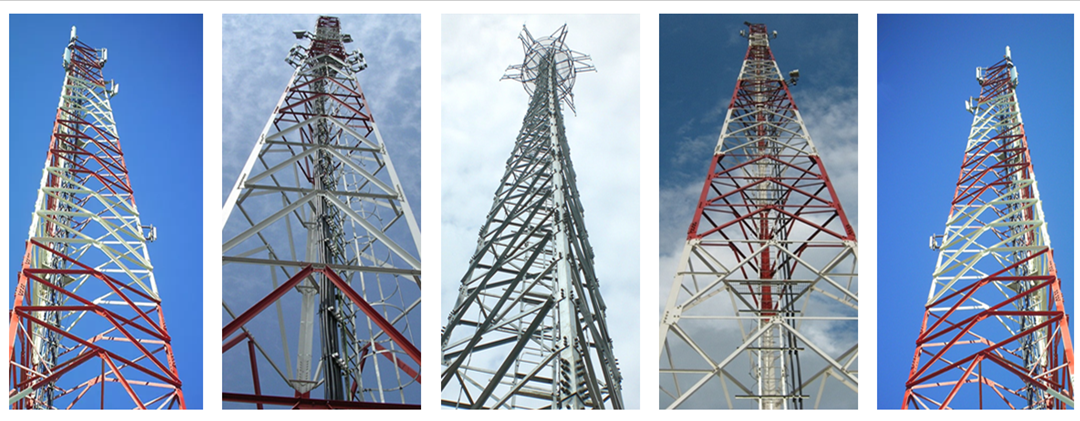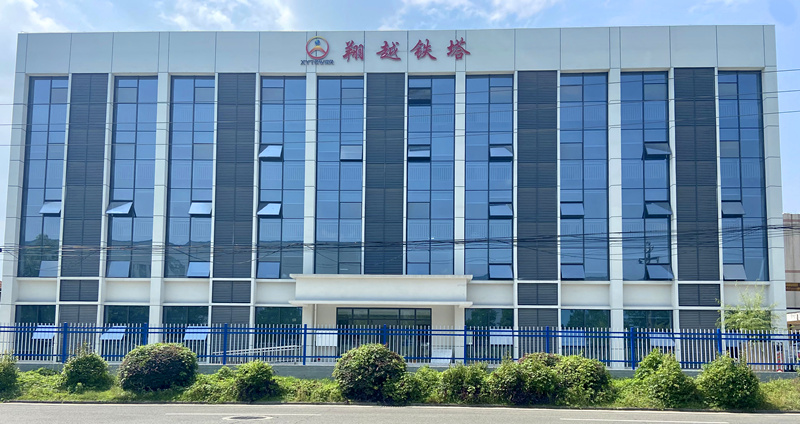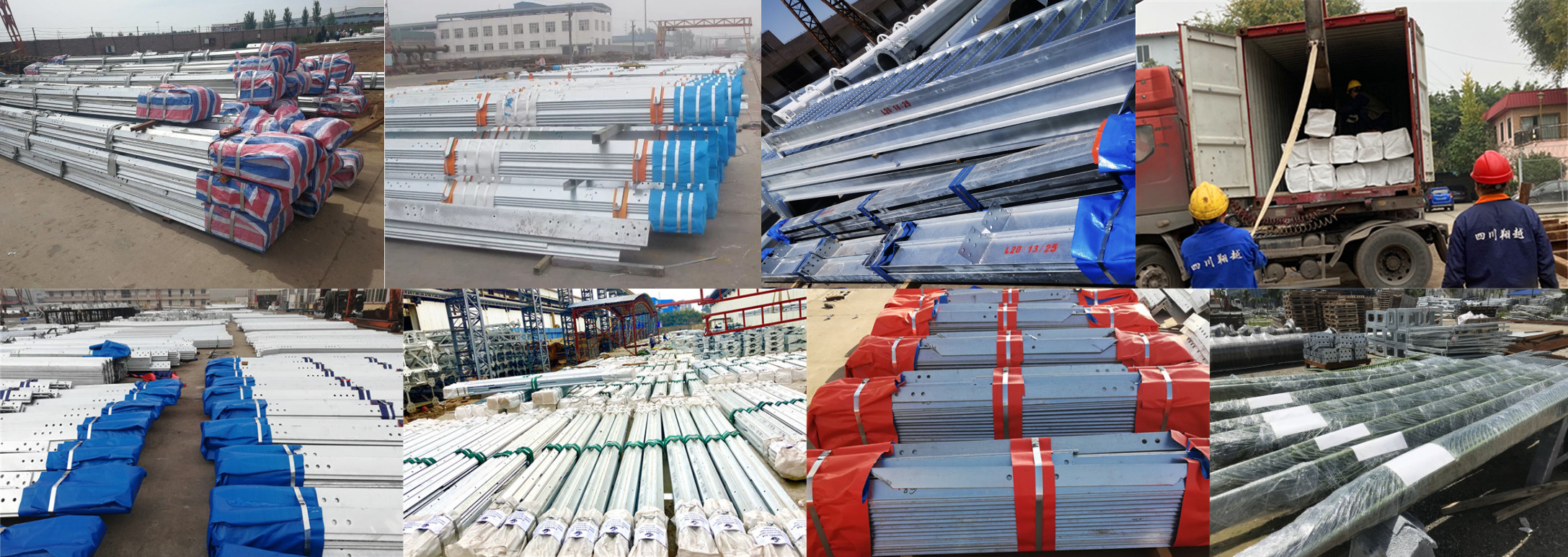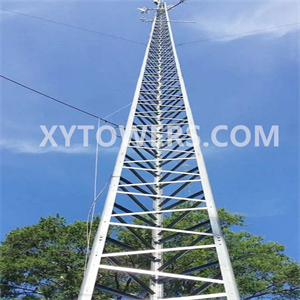30M Self Supporting Telecom Antenna Galvanized Steel Lattice Tower
Telecommunication Angle Steel Tower Show
Standards Antenna Supporting Structure Design:
The rapidly growing and increasingly competitive Telecommunications, Broadcasting and wireless Communication Industries requite fast, flexible and cost efficient infrastructure project implementations. Contractors and suppliers who can meet those demands allow Operators to gain revenues early on and reduced internal cost overheads. XYTOWER addresses these market demands by Introducing standardized antenna supporting structures, thereby guaranteeing short design phases. This approach consequently ensures minimum lead times from the initial order to the actual of project implementations
Type of Standard Antenna Supporting:
3 or 4 legged Telecommunications Tower constructed either from Angles or Pipes using Mild steel and High Tensile materials for Main legs and Tower members
Design Wind Speed: 120- 250km/hr
Custom design to Client requirement
Design Criteria Standard:
The design criteria are based on an extensive research on most common antenna supporting structures fulfilling the majority of technical specifications and requirements of telecommunications applications
Antenna Design Loading:
Custom design to Client requirement
Final Materials Finishes:
Hot dipped Galvanised to ASTM 123 standards

What We Do

X.Y. Towers is a leading company of high voltage transmission line in south west China.Established in 2008,as a manufacture and consulting company in field of Electrical and Communication Engineering,it has been providing EPC solutions to the growing demands of Transmission and Distribution(T&D)sector in the region.
Since 2008,X.Y towers has been involved in some of the largest and most complicated electrical construction projects in China.After 15 years of steady growth.we provide array of services within electrical construction industry which includes design and supply of transmission & distribution lines and electrical substation.
our core services and products comprise of:
Item Specifics
|
Product Name
|
Telecom Tower |
|
Raw Material
|
Q235B/Q355B/Q420B
|
|
Surface Treatment
|
Hot dip galvanized
|
|
Galvanized Thickness
|
Average layer thickness 86um
|
|
Painting
|
Customized
|
|
Bolts
|
4.8;6.8;8.8
|
|
Certificate
|
GB/T19001-2016/ISO 9001:2015
|
|
Lifetime
|
More than 30 years
|
|
Manufacturing Standard
|
GB/T2694-2018
|
|
Galvanizing Standard
|
ISO1461
|
|
Raw Material Standards
|
GB/T700-2006, ISO630-1995, GB/T1591-2018;GB/T706-2016;
|
|
Fastener Standard
|
GB/T5782-2000. ISO4014-1999
|
|
Welding Standard
|
AWS D1.1
|
|
Design Wind Speed
|
30M/S (varies by regions)
|
|
Icing Depth
|
5mm-7mm: (varies by regions)
|
|
Aseismatic Intensity
|
8°
|
|
Preference Temperature
|
-35ºC~45ºC
|
|
Vertical Missing
|
<1/1000
|
|
Ground Resistance
|
≤4Ω
|
Structure Features
Communications towers are installed for several important purposes:
1.Telecommunications: Communication towers play a key role in providing reliable and efficient telecommunications services. They serve as the basis for antennas and other communication equipment, allowing the transmission of voice, data and multimedia signals. These towers support mobile networks, telephony, Internet access and other telecommunications services essential to modern communications.
2.Network Coverage: Strategic placement of communication towers ensures optimal network coverage. By installing cell towers in different locations, telcos can provide signal coverage in both urban and rural areas. This enables wider access to communication services, bridges the digital divide and connects people in different regions.
3.Improved Connectivity: Communication towers enhance connectivity by increasing signal strength and network capacity. They facilitate the seamless exchange of information, enabling faster and more reliable communications. This is especially important for businesses, remote workers and individuals whose daily operations depend on constant connectivity.
4.Emergency Communications: During emergencies or natural disasters, communication towers are critical for reliable communication and coordination. They support emergency services, first responders and public safety organizations in quickly responding to and managing emergencies. Communications towers can be equipped with backup power to ensure continued operation in the event of a power outage.
5.Broadcasting: Communication towers are also used to broadcast radio and television signals. By transmitting signals from high places, these towers ensure a wider broadcast range. This enables information, entertainment and news to reach a wider audience.
6.Wireless Technology: Communication towers help support wireless technologies such as Wi-Fi and cellular networks. These towers enable wireless connectivity in public places, homes, businesses and other areas, allowing users to access the Internet and communicate wirelessly.
Package

Any questions, please feel free to consult!









